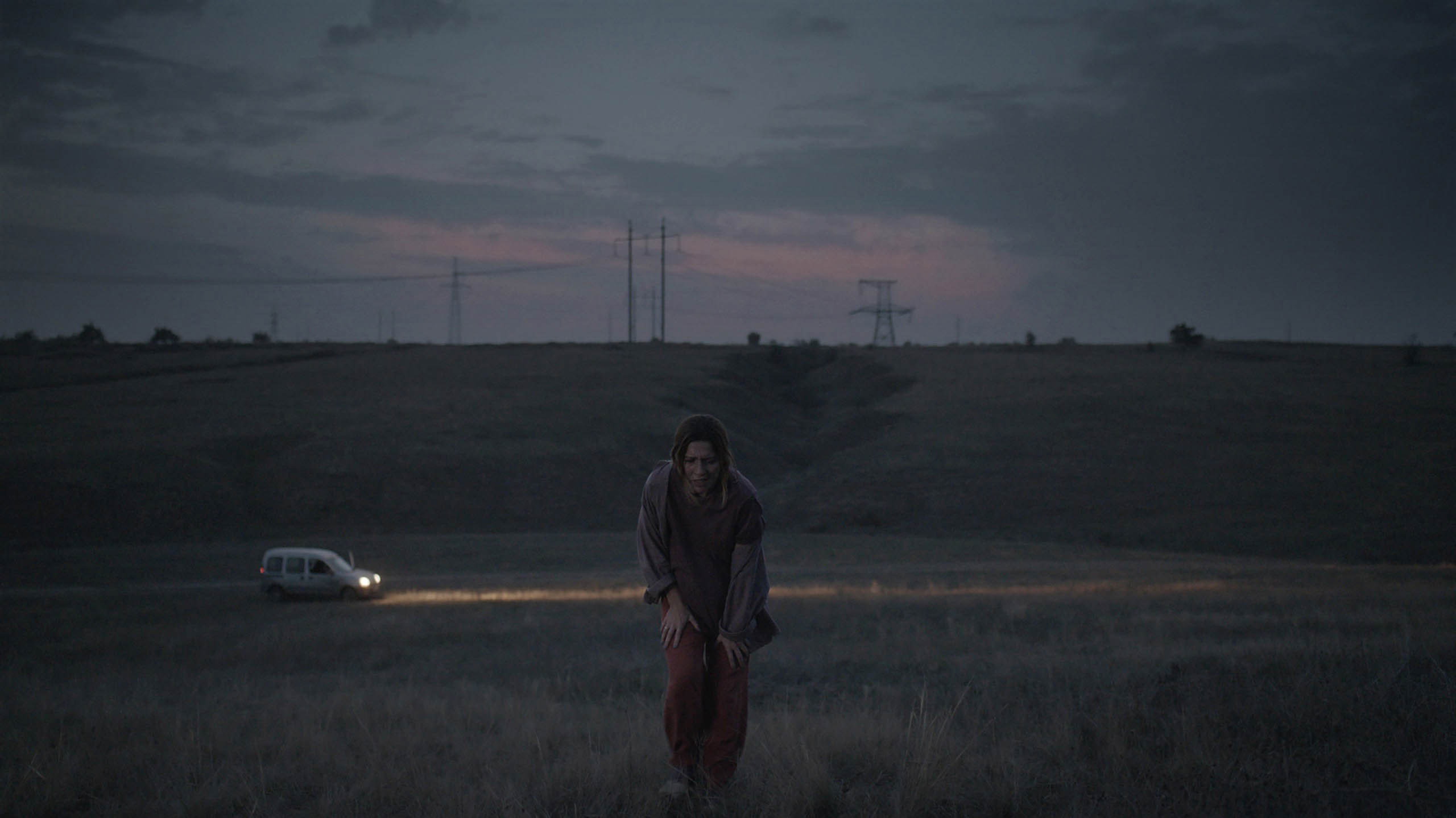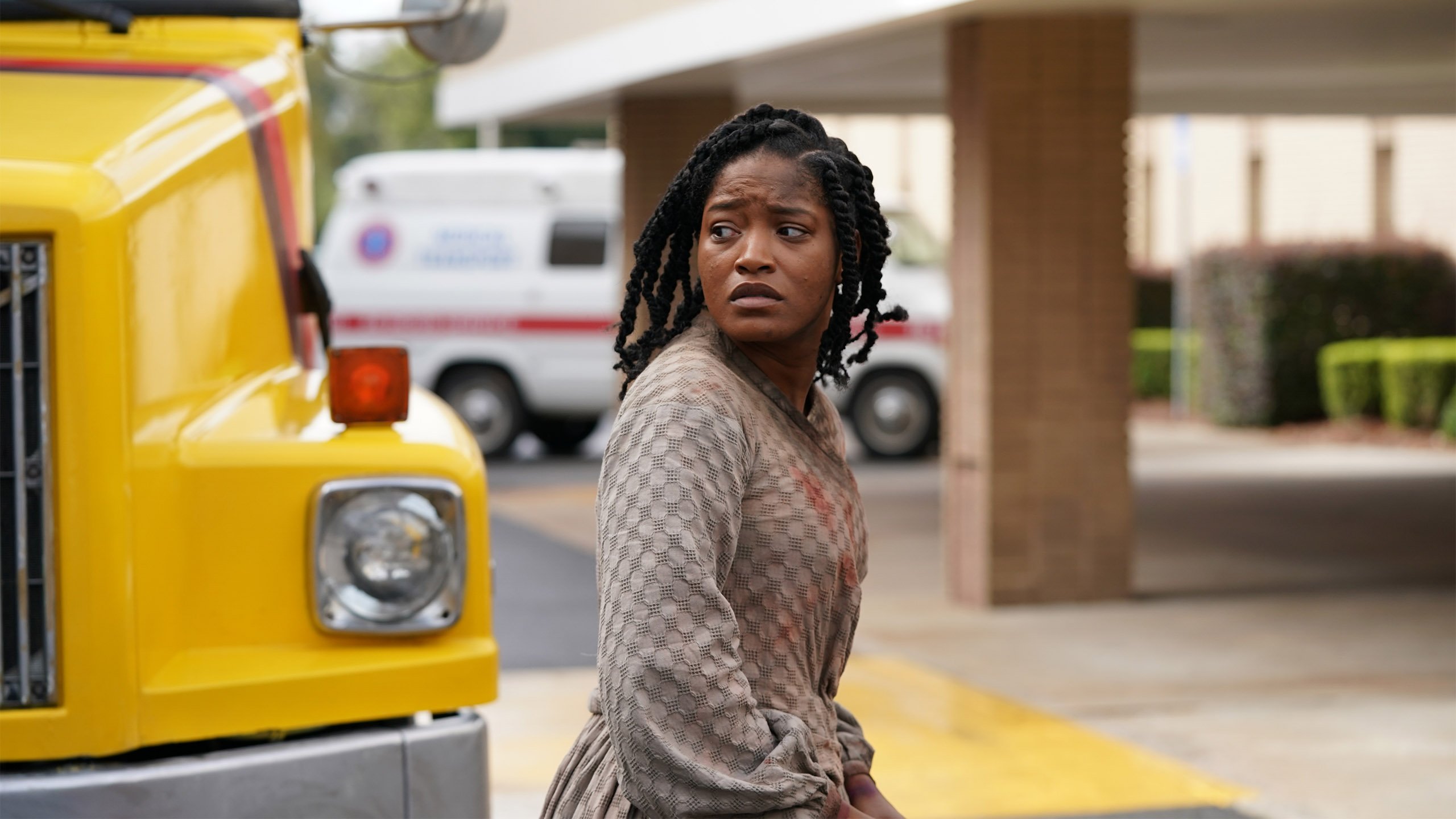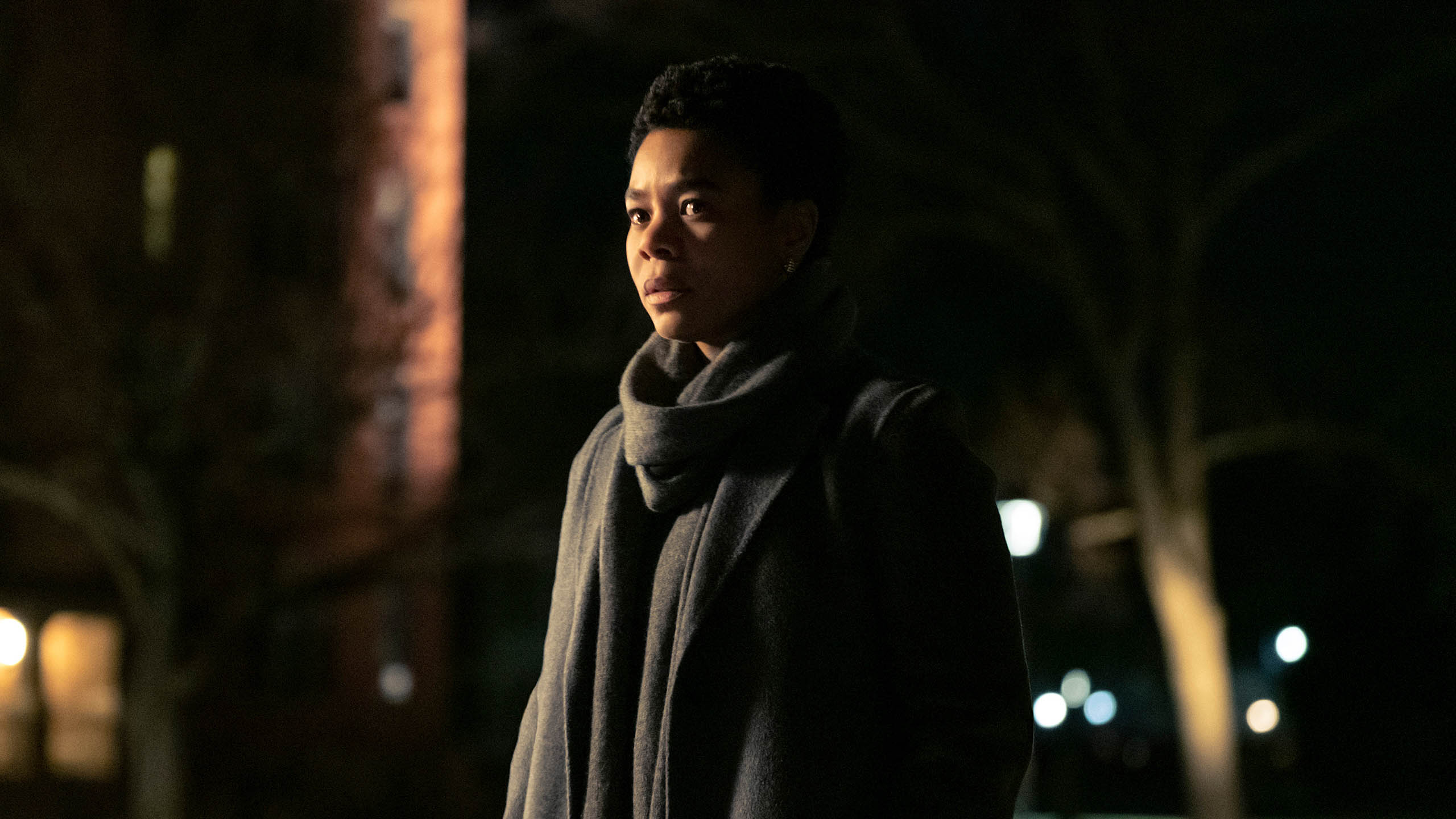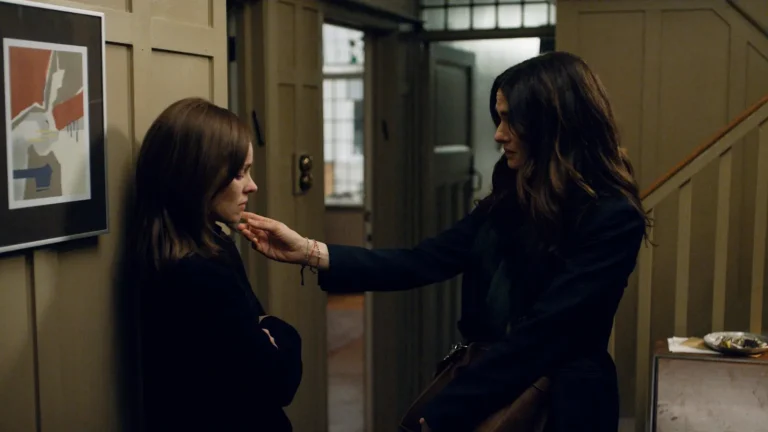The fourth round of our Sundance coverage features Maryna Er Gorbach’s Klondike, Krystin Ver Linden’s Alice & Mariama Diallo’s Master:
Klondike

It’s 2014. The borders of Russia and Ukraine are really troubled. Sooner or later, the lands will ravage themselves as an implication of an impending war. Irka and her husband are expecting. The dilemmas are double for Irka. On one hand, she’s invested in managing what is left of her home. On the other, she needs to take care of herself while managing the conflict between her husband and her brother, who lock horns because of being on the opposite sides of the spectrum. The plot of Klondike expands on the lived-in nature of this family’s difficult, torn life at the margins. It does until it explodes.
Klondike is the sophomore feature of Maryna Er Gorbach. And the film certainly shows her keen eye for observing things carefully. The way she orchestrates drama is minimalistic but also very potent. The writing is empathetic and moving. It clearly illustrates a less conventional view of war as compared to the other war films in recent memory. The performances are inconsistent, but they’re salvaged by Oksana Cherkashyna’s exceptional leading performance. She lets us see through the tiredness, sadness, and calm of Irka, thus developing her character perfectly. The immersive widescreen cinematography by Svyatoslav Bulakovsky makes the film’s ugliness look stunning. It’s all very compelling until it lasts. More so, because it really mines out the female experience in the masculine madness of war. And that’s a territory rarely tingled by world cinema’s filmmakers.
However, the film also grapples with significant indie film problems. It could have been edited better, and that affects the terrible pacing issues which plague the film. The writing is good, but it could have produced just a little more charm, cut down on coldness (because it does so in places), and strengthen the connective tissues between characters. The film has a greatly rounded premise, but certain aspects needed a little more expansion. Perhaps the film’s comprehensiveness makes it a little forgettable, which isn’t a good sign. However, for what it’s worth, Klondike is a sincere film about a war’s broad implications. Despite many issues, its originality and clarity in vision make it stand out.
Alice

The story of Alice follows its titular character. Like the majority of the Afro-American population in the colonial world, she’s a plantation worker, her location being rural Georgia. Naturally, she’s tired of the slavery and torture inflicted upon herself and her family, and she can’t do anything about it. After a violent encounter with the plantation worker Paul, she flees through the neighboring jungle. Thereafter, perhaps following a loss of consciousness, she stumbles upon a highway that she hadn’t seen before. Soon, she starts meeting people who dress and talk quite differently. Soon, she discovers that the year now is 1973. And while racism is still pretty much there, slavery has been abolished. It’s a hundred-year leap in time, and she does, to her astonishment, live on.
It’s an immediately catchy premise, the one that Alice evolves around. The backdrop of racism and slavery provides its effective plot with a rich subtext and a degree of complexity. The technical polish of the film helps here as well. Alex Disenhof’s cinematography is pretty neat and even wild in the latter portions. The production design by Gregory A. Weimerskirch brilliantly recreates the mid-nineteenth and mid-twentieth century timelines. The editing and set-pieces are also pretty tight. However, the film’s basic premise is perhaps the only memorable thing about it. In her directorial debut, Krystin Ver Linden is too invested in exploring campy genre territories. The genre boundaries get so restrictive for the film that they don’t let it rise towards the greatness of its premise even moderately. The blacksploitation flavor of the film in the latter half is particularly atrocious. The writing is too inconsistent and incoherent to be cared for.
Most of all, the film doesn’t work because of mediocre leading performance. Keke Palmer needed to work for the film itself to work. The reason being Linden’s trust on her to carry the entire material. Instead, Palmer delivers a diluted and stunted act, which might just be because of the lack of allure in the film itself. It’s solid proof that the interesting relevance of the plot and competent use of technology is never enough for a film to work. And without them, with compelling writing, the experience can elevate itself in its entirety. I wish Krystin is more attentive towards the script for her sophomore.
Master

Like it or not, it’s quite evident now. The campy sub-group of horror as a genre, long lost with technical and cinematic progress, is slowly coming back. Since last year, we’re getting many such films, from Cronenbergian morbidity of Titane to the Giallo-exploitation of Censor and Last Night in Soho. However, what one must note is that these are not particularly atrocious. These stories essentially take the format and attempt to subvert it with actual substance and relevant things to say. Debut director Mariama Diallo uses the thrill element of this campiness to craft a solid first picture in Master.
The film revolves around a haunted New England university in Ancaster. Here, two middle-aged black women are striving to assert their authority. And while it’s going at its own pace, the arrival and horrific experiences triggered upon a black student Jasmine really shifts something. While telling you anything else about the plot would be a potential spoiler, I must say that the navigation of internal politics is solid. Charting the conflict of opinions and a professed theorem reluctant and too dominant to be canceled, the racial dilemmas are presented quite literally.
The timeless nature of ghouls and monsters which haunt the grounds seem timid in comparison to the assertive nature of America. Master shows how racism is even more powerful today than it was yesterday. It operates through glances, indirect suggestions, and disarmingly simple dialogue. The repetitive acknowledgment of an ‘inclusive’ and ‘diverse’ environment is worse. And all of this has been treated as a first-hand experience of three black women.
The mainstream, campy nature of the story aims to redirect the audience towards something more truthful and personal.
It’s a captivatingly shot and entertaining film provoking radical thoughts than obviously woke ones. Amber Gray lives up to the task of representing a further provocative truth- the one which compels her to ‘pass’ for black while being of a probably mixed origin. Zoe Renee is charming and memorable as the brilliant, tragic Jasmine. However, the finest performance of the film belongs to Regina Hall. Her performance is a profound mix of restraint and utter horror, which feels like one that doesn’t belong to such a film. Master, anyway, is predictable and not as memorable as it should have been. I was infuriated at the screen time and space given to Talia Ryder, who seems to be cast unnecessarily. However, most of these things don’t matter because Master is a wonderful story told with the complexity and glassed-up gleam that it deserves.







![Live by Night [2017] : Vice, Rum And Wannabe Gangsters](https://79468c92.delivery.rocketcdn.me/wp-content/uploads/2017/01/Live-by-night-High-on-films-768x328.jpg)